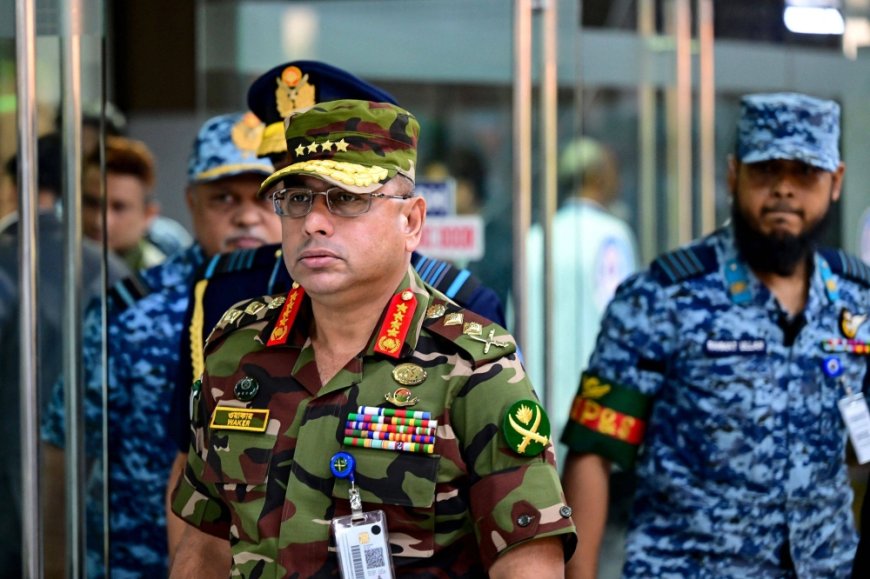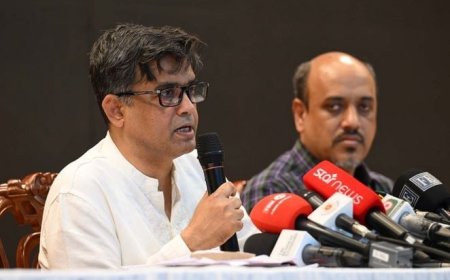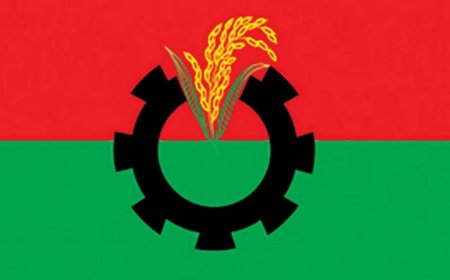General Waker's decisive leadership has restored the Armed Forces as a symbol of trust
Today marks the first Armed Forces Day observed since the fall of Sheikh Hasina's government.

On August 5, a historic day, the ISPR (Inter-Services Public Relations) made an unexpected announcement at 1:30 pm, stating that Chief of Army Staff General Waker-Uz-Zaman would address the nation at 2:00 pm. As the nation waited with bated breath, the speech was rescheduled to 3:00 pm. The previous day had seen over a hundred lives lost in violent clashes sparked by a student-led anti-discrimination movement. Despite a curfew, the streets were filled with protests demanding the resignation of Prime Minister Sheikh Hasina, with large rallies converging on Dhaka.
At 4:00 pm, General Waker delivered the news that brought the nation much-needed relief: Sheikh Hasina had resigned and left the country. In his address, he reassured the public, stating, “We promise justice for every death. Trust in the armed forces; all demands will be met, and peace and order will be restored. We will consult with the honorable President to form an interim government to guide the nation through this transitional phase.”
Today, November 21, marks the first Armed Forces Day celebrated since the fall of Sheikh Hasina’s government, honoring the military’s pivotal role during the uprising. This day reflects the steadfast support of the armed forces for both students and the general public during the crisis. The contributions of all branches—army, navy, and air force—are being acknowledged with gratitude for their solidarity with the anti-discrimination movement.
General Waker’s decisive leadership during the July-August uprising is seen as a defining moment in history. By refusing to use force against protesters, the military emerged as a symbol of trust and integrity. On August 3, during a speech at the army’s helmet auditorium, General Waker instructed his officers to refrain from firing on students or civilians under any provocation. His commitment to maintaining peace and protecting public trust helped prevent bloodshed and a potential civil war.
Junior officers in the army also voiced their strong reluctance to act against the protesters, which facilitated General Waker’s critical decision to withhold force. Major Zaber (Retd.), a coursemate of General Waker, noted, “He could not accept the order to fire on students. From mid-July, he was under immense pressure, but his ultimate decision was one of humanity and principle.”
Before his speech on August 5, General Waker held discussions with political leaders from parties other than Sheikh Hasina’s. He emphasized the necessity of forming an interim government to guide the nation through this turbulent time. His swift decisions and clear communication helped prevent the feared mob justice following the regime’s fall, which many worried would result in widespread violence against those aligned with the deposed government.
In the aftermath of the unrest, the armed forces played a critical role in stabilizing the nation. They provided shelter to individuals seeking safety, including judges, civil officials, and police officers. According to an ISPR report, 626 people, including political figures and their families, found refuge in military facilities.
General Waker also directed military hospitals to provide free treatment to those injured during the protests. Over 2,000 people were treated, including 582 who required urgent surgeries. The military also provided mobility aids and arranged for severely injured patients to be sent abroad for advanced treatment.
The armed forces worked tirelessly to restore law and order, combat drug trafficking, recover illegal arms, and address unrest in industrial sectors. In meetings with business leaders, General Waker reassured them of the military’s commitment to safeguarding industries and ensuring the stability of the economy.
In the post-uprising period, General Waker engaged in significant international diplomacy, including meetings at the United Nations in New York, where he highlighted the military’s impartial role and laid out a plan for a return to democratic governance within 18 months.
The military’s consistent focus on upholding human rights and delivering justice has solidified its reputation as a trusted institution. As General Waker recently stated, “Our duty is to serve the people and maintain peace. With patience and professionalism, we will continue supporting the civil administration and citizens during this transitional period.”
The events of the July-August uprising and its aftermath have reinforced the armed forces' position as a pillar of public trust. Under General Waker’s leadership, the military not only navigated a complex political crisis but also stood firmly with the people, earning widespread respect and admiration. On this Armed Forces Day, the nation reflects on the military's bravery and unwavering commitment to justice and democracy.
What's Your Reaction?





















































































